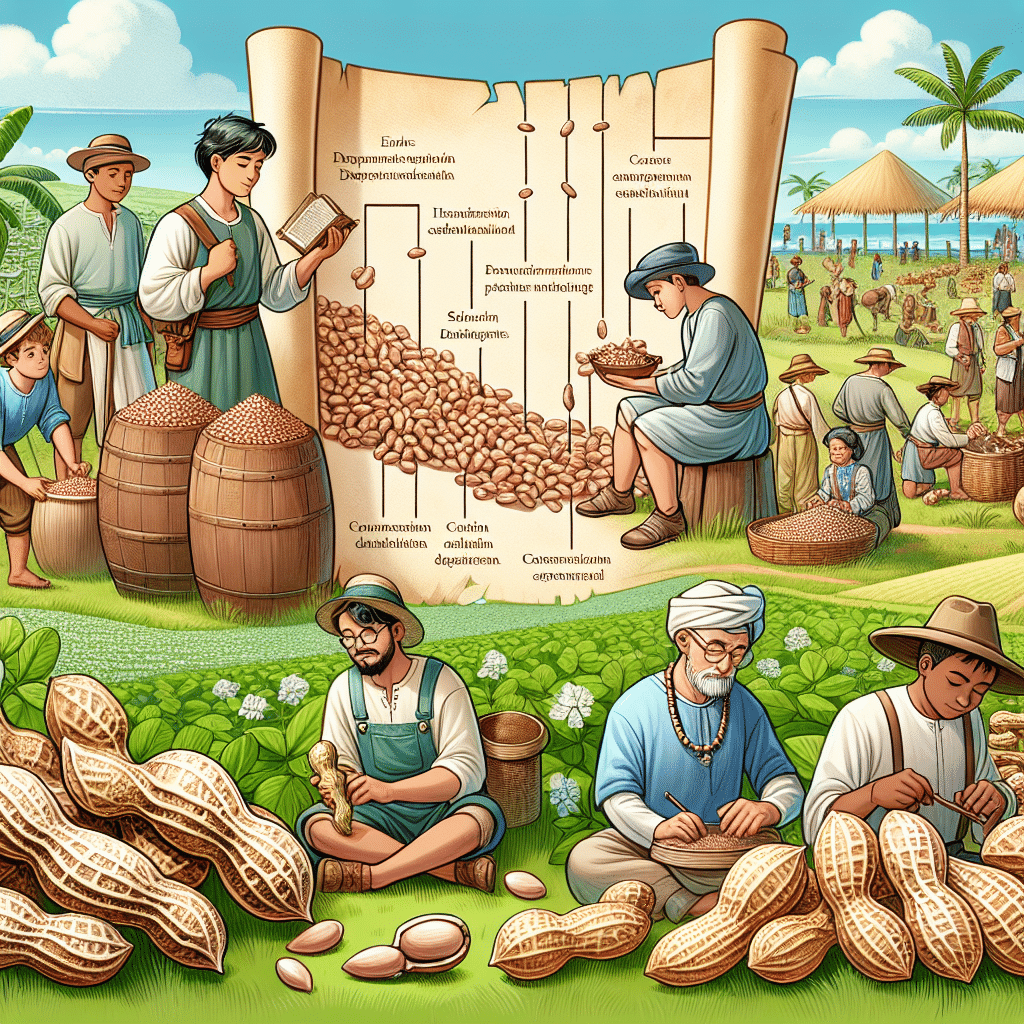Origins of Peanuts: Unearthing The Nutty History
-
Table of Contents
- Origins of Peanuts: Unearthing the Nutty History
- The Ancestral Roots of Peanuts
- Spread Across the Globe
- Peanuts in North America
- The Cultural Significance of Peanuts
- Health Benefits and Nutritional Value
- Modern Peanut Production and Consumption
- Conclusion: The Enduring Legacy of Peanuts
- Discover ETprotein’s High-Quality Peanut Protein Products
Origins of Peanuts: Unearthing the Nutty History

Peanuts, despite their common association with nuts, are actually legumes, akin to beans and lentils. This fascinating food has a rich history that spans continents and cultures. In this article, we will delve into the origins of peanuts, tracing their journey from ancient times to the modern-day snack and ingredient that is beloved worldwide.
The Ancestral Roots of Peanuts
The story of peanuts begins in South America, where they are believed to have originated. Archaeological evidence suggests that the peanut plant, scientifically known as Arachis hypogaea, was cultivated in the valleys of Paraguay and Brazil over 7,500 years ago. Ancient South American civilizations, including the Incas, were known to have grown and utilized peanuts for food, as well as for sacrificial offerings and to make vessels for religious ceremonies.
Spread Across the Globe
The peanut’s journey from South America to the rest of the world is a tale of exploration and trade. When Spanish and Portuguese explorers arrived in the New World, they encountered peanuts and brought them back to Europe. From there, peanuts spread to Africa and Asia through trade routes. In Africa, peanuts found a hospitable climate and quickly became a staple crop, especially in West Africa.
Peanuts in North America
Peanuts were introduced to North America during the transatlantic slave trade, as enslaved Africans brought the knowledge of peanut cultivation with them. Initially used primarily as animal feed, peanuts gained popularity in the United States after the Civil War. Technological advancements in the 19th and 20th centuries, such as the invention of peanut butter and the mechanical peanut sheller, helped cement peanuts as a staple in American diets.
The Cultural Significance of Peanuts
Peanuts have played a significant role in various cultures around the world. In Africa, peanuts are used in a variety of dishes, such as groundnut stew. In Asia, particularly in China and India, peanuts are used in numerous culinary applications, from sauces to desserts. In the United States, peanuts are synonymous with baseball games and peanut butter sandwiches.
Health Benefits and Nutritional Value
Peanuts are not only tasty but also packed with nutritional benefits. They are an excellent source of protein, healthy fats, vitamins, and minerals. Peanuts contain heart-healthy monounsaturated and polyunsaturated fats, which can help lower bad cholesterol levels. They are also rich in antioxidants and have been linked to a reduced risk of heart disease and other chronic conditions.
Modern Peanut Production and Consumption
Today, peanuts are grown in many parts of the world, with China, India, and the United States being the top producers. The global peanut industry continues to thrive, with peanuts being consumed in various forms, including raw, roasted, and as peanut butter. The versatility of peanuts has led to their inclusion in a wide array of products, from snacks to cosmetics.
Conclusion: The Enduring Legacy of Peanuts
The history of peanuts is a testament to their enduring appeal and versatility. From their origins in South America to their global spread, peanuts have become an integral part of diets and cultures around the world. Their rich nutritional profile and diverse culinary uses ensure that peanuts will remain a beloved food for generations to come.
Discover ETprotein’s High-Quality Peanut Protein Products
If you’re looking for premium peanut protein products, look no further than ETprotein. Their peanut protein is perfect for enhancing your food products with a boost of plant-based protein. Whether you’re developing sports nutrition supplements, health and wellness products, or simply looking to enrich your food offerings, ETprotein’s peanut protein is an excellent choice.
About ETprotein:
ETprotein, a reputable protein Chinese factory manufacturer and supplier, is renowned for producing, stocking, exporting, and delivering the highest quality organic bulk vegan protein and plant proteins. They include Organic rice protein, clear rice protein, pea protein, clear pea protein, pumpkin seed protein, sunflower seed protein, mung bean protein, peanut protein etc. Their offerings, characterized by a neutral taste, non-GMO, allergen-free attributes, cater to a diverse range of industries. They serve nutraceutical, pharmaceutical, cosmeceutical, veterinary, as well as food and beverage finished product distributors, traders, and manufacturers across Europe, USA, Canada, Australia, Thailand, Japan, Korea, Brazil, and Chile, among others.
ETprotein specialization includes exporting and delivering tailor-made protein powder and finished nutritional supplements. Their extensive product range covers sectors like Food and Beverage, Sports Nutrition, Weight Management, Dietary Supplements, Health and Wellness Products, and Infant Formula, ensuring comprehensive solutions to meet all your protein needs.
As a trusted company by leading global food and beverage brands and Fortune 500 companies, ETprotein reinforces China’s reputation in the global arena. For more information or to sample their products, please contact them and email sales(at)ETprotein.com today.














